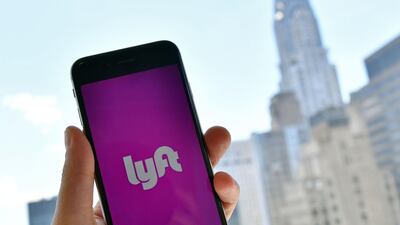Ride-hailing company Lyft beat bigger rival Uber Technologies in filing for an initial public offering that will test investor appetite for high-profile but loss-making technology companies.
The company, which was last valued at about $15 billion, did not specify the number of shares it was selling or the price range for the offering in a confidential filing with the Securities and Exchange Commission on Thursday.
The IPO is slated for the first half of 2019, sources have said. Uber is expected to pursue an IPO next year that could value it at about $120bn, while home-renting company Airbnb, valued at $31bn, is also seen listing in 2019.
High-profile tech unicorns such as Dropbox Inc and Spotify dominated the US IPO landscape this year, but the recent turmoil in financial markets due to escalating trade tensions between the United States and China could dampen enthusiasm for offerings from Lyft and Uber.
Investors fear that stock market weakness could result in reduced interest in their road shows or fail to fetch them a reasonable valuation.
_______________
Read more:
Uber sales hit brakes as revenue halves in third quarter
Scooter and e-bike renter Lime to enter dozens more cities
_______________
"Market declines mean that the offer price will be lower than otherwise. But there's a danger of waiting to go public as well - markets could go even lower, and the companies could raise less money if they waited longer," said Jay Ritter, an IPO expert and professor at the University of Florida.
Uber and Lyft's IPOs are widely seen as a litmus test for investor tolerance for lack of profitability when it comes to iconic technology unicorns.
The two companies have taken hits to their bottom lines in order to attract drivers and enter new markets, although they have made strides in recent years in narrowing their losses.
"The 'cab-hailing-system' has been antiquated and left as a dinosaur of yesteryears. The good news for ride-sharing is that it's a market that has shown to be penetrable," said Jeff Zell, senior research analyst and partner at IPO Boutique in Florida.
"With autonomous cars on the horizon, it is anyone's guess where this sector goes in the future. But Uber and Lyft, as name-brand leaders, are leading the race and will have the war-chest to be major players for years to come."
Lyft's IPO is expected to commence after the SEC completes its review process, it said on Thursday.
Reuters reported in October that Lyft had chosen JP Morgan, Credit Suisse and Jefferies as underwriters for its IPO.
The company was set up in 2012 by technology entrepreneurs John Zimmer and Logan Green, three years after Travis Kalanick co-founded Uber.

